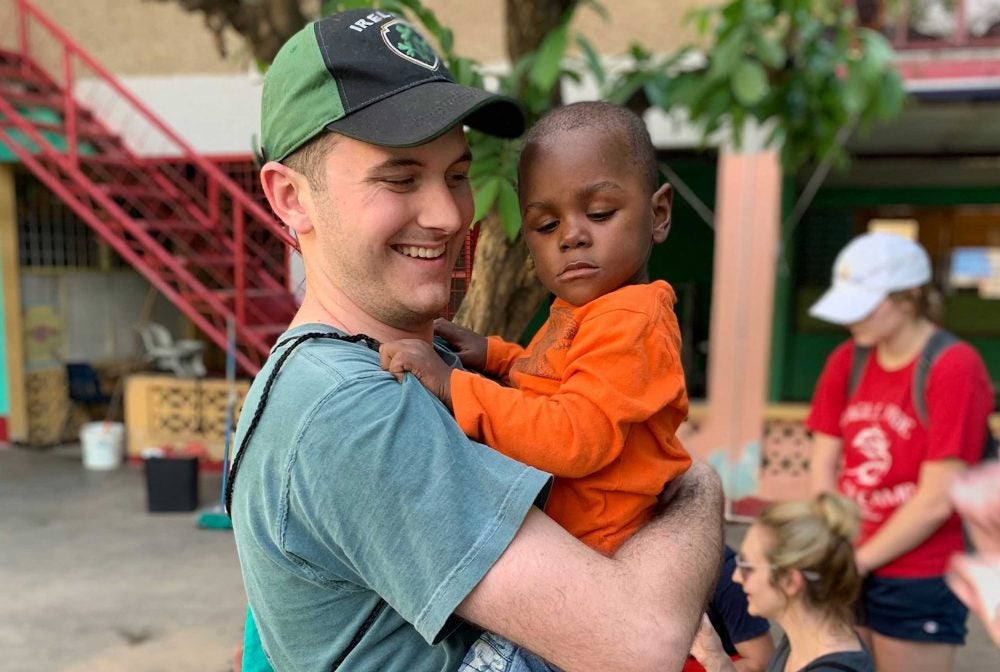
During J Term 2019, pharmacy student James Deforte was among students from the URI Academic Health Collaborative colleges who worked with children with disabilities in Jamaica.
Erin Connelly keeps going back to Jamaica. The pharmacy student recently made her third URI trip there to work with some of the island’s most vulnerable populations.
In January, she joined 20 of her fellow students and three faculty members from the Colleges of Pharmacy, Nursing, and Health Sciences to work with disabled residents affiliated with Mustard Seed, an organization in Jamaica serving abandoned children and adults with disabilities. The students lived among the patients in residential communities, working with them on managing their medications, caring for the symptoms of their conditions, and providing physical therapy for conditions such as cerebral palsy.
They also conducted workshops for caregivers at the facility on such topics as medication administration, first aid, self-care, over-the-counter medications, and proper use of medical equipment.
“A lot of the caretakers don’t have formal training; we’re one of their primary sources of information and education,” said Connolly, noting the URI College of Pharmacy is the only pharmaceutical organization to regularly visit the facility. “We might be the only education they get in terms of medication. I think the information we bring has made a real difference.”
A Tradition of Collaborative Service Learning
The experience in Jamaica is defined by its collaborative approach. The students were able to help caregivers improve their service, while also learning from them and each other. That’s been the goal of the annual J Term trip that began in 2013. For the last couple of years, the addition of nursing and physical therapy students has broadened both the approach to the care they are able to provide and the educational experience the students take away.
“Physical therapy and nursing helped teach us about their disciplines, so it was a great learning experience, in addition to being able to provide a service,” Connolly said. “And we learned a lot from the caregivers. They have very limited resources, but they’re creative and they get the most out of them.”
The nursing, health sciences, and pharmacy students helped in that regard, as well, delivering 34 suitcases full of medical supplies totaling more than $10,000 in value. In addition, prior to the trip, each student raised about $2,000 to help fund Mustard Seed’s mission.
The University of Rhode Island Academic Health Collaborative provides interdisciplinary teaching and learning spaces, and access to experts, for all of URI’s health disciplines.



